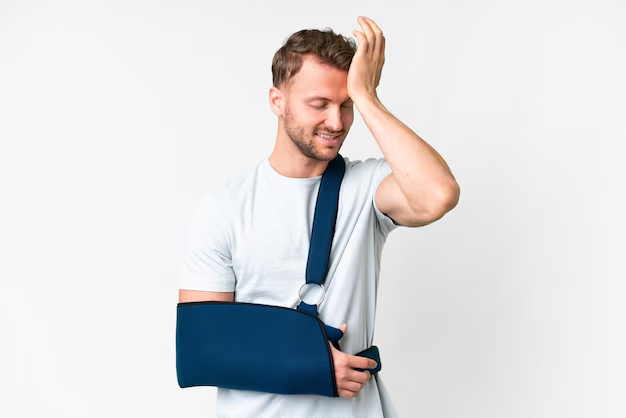Exploring the Connection: Can Head Trauma Lead to Parkinson's Disease?
Parkinson's disease (PD) is a progressive neurological disorder that affects movement, motor skills, and often includes tremors. It’s a condition most commonly associated with aging. However, recent research has explored whether head trauma could be an influential factor in developing PD. The question, "Can head trauma cause Parkinson's?" is becoming more prevalent as we seek to understand the nuances of neurological health. In this article, we delve into the complexities of this topic and provide an insightful, engaging perspective that adds value and context for curious readers.
Understanding Parkinson's Disease
What Is Parkinson's Disease?
Parkinson’s disease is a neurodegenerative disorder primarily characterized by the degeneration of dopamine-producing neurons in the brain. This lack of dopamine gives rise to symptoms such as:
- Tremors: Shaking that typically starts in the hands or fingers.
- Bradykinesia: Slowness in movement over time.
- Muscle Rigidity: Stiffness in the limbs and trunk.
- Impaired Balance: Eventually leads to unstable posture and difficulties in mobility.
Who is at Risk?
While age is the most significant factor, other components include genetics and environmental triggers. Research is continuously unveiling new potential risks, with head trauma now being scrutinized for its possible link to PD.
The Role of Head Trauma in Neurological Disorders
How Does Head Trauma Affect the Brain?
Head trauma, particularly traumatic brain injury (TBI), can cause physical damage to brain tissues, leading to both immediate and long-term effects. These include:
- Concussions: Temporary functional brain injury.
- Chronic Traumatic Encephalopathy (CTE): Degenerative brain disease common in athletes.
- Cognitive Impairment: Issues with memory and thinking.
Linking Head Trauma and Parkinson's
The possibility that previous head injuries might influence the onset of Parkinson’s disease is supported by various studies. A few potential mechanisms include:
- Inflammatory Response: Head trauma initiates brain inflammation, potentially triggering neurodegenerative processes.
- Protein Build-up: Trauma may accelerate the accumulation of misfolded proteins similar to those found in PD.
- Neurological Pathway Damage: Head injuries could damage brain parts related to movement and dopamine synthesis.
Research Insights and Findings
Studies in Focus
A large-scale study conducted has shown an association between mild TBI and a heightened risk of developing PD later in life. Additionally, the study found that the risk increases with the number and severity of TBIs one endures.
Dissecting the Findings
Though a correlation exists, it's essential to acknowledge that these studies do not confirm a direct causation. Other factors, such as genetic predisposition and lifestyle choices post-injury, can also play significant roles in the development of Parkinson’s.
Considerations and Preventive Measures
Minimizing Risk of Head Trauma
Preventing head injuries is a key preventative strategy, particularly for high-risk populations such as athletes and elderly individuals. Practical measures include:
- Using Protective Gear: Helmets and safety equipment during sports or risky activities.
- Fall Prevention: Ensuring safe environments for senior citizens at home.
- Education and Awareness: Promoting awareness about head injuries and their potential long-term impacts.
Monitoring After Injury
After experiencing a head injury, individuals should observe for any concerning symptoms. This should include regular medical evaluations to flag early signs of neurological issues.
Where Do We Stand?
The conversation around head trauma and its connection to Parkinson’s disease underscores the need for further research. While there's evidence suggesting a link, many variables and unknowns remain. Researchers continue to investigate how exactly trauma influences neurological degeneration, which could unravel new preventive and therapeutic options for PD.
Conclusion: Moving Forward with Knowledge and Caution
Understanding the implications of head trauma in relation to Parkinson's disease is an evolving field that demands attention. This knowledge empowers individuals with awareness and prevention strategies crucial for reducing potential long-term effects. While further research is necessary to draw definitive conclusions, staying informed and adopting safety measures today can contribute to a healthier tomorrow.
Quick Tips & Takeaways 📝
- Head Trauma & PD Link: Acknowledged association, not direct causation.
- Symptoms to Watch: Post-injury monitoring for neurological symptoms is key.
- Preventive Steps: Helmets, safe environments, and education promote safety.
- Research Implications: Continued studies are essential for understanding mechanisms.
- Empowered Living: Use awareness to make informed lifestyle choices.
Understanding these connections could pave the way toward more informed healthcare decisions and lifestyle modifications, ultimately contributing to healthier outcomes. Stay safe and proactive!

Related Articles
- Are There Environmental Causes Of Parkinsons
- Can Alcohol Cause Parkinson's
- Can Concussions Cause Parkinson's
- Can Females Get Parkinson Disease
- Can Parkinson Disease Cause Dizziness
- Can Parkinson's Affect Eyesight
- Can Parkinson's Affect Memory
- Can Parkinson's Affect Speech
- Can Parkinson's Affect Vision
- Can Parkinson's Be Cured
